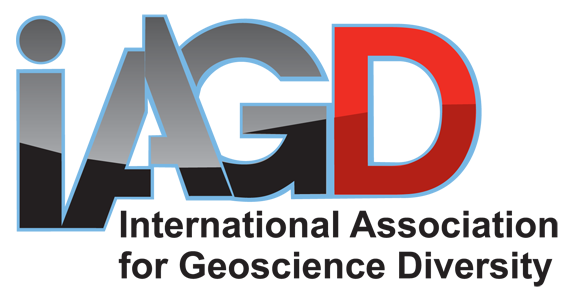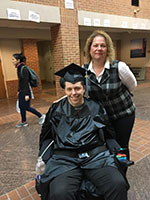Accessible Field Geology of Western Washington
With the need to support students with disabilities working in geoscience field courses, a fully inclusive and accessible field trip will take place on Saturday, October 21 during the 2017 Geological Society of America Annual Meeting in Seattle, Washington. This field trip has three primary objectives: (1) to provide a fully-inclusive field-based learning experience for students with a variety of disabilities (cognitive, deaf/hard-of-hearing, blind/low-vision, and orthopedic/mobility); (2) to provide a unique training opportunity for geoscience faculty learning how to accommodate students with disabilities in geoscience field courses, by pairing them with the students where they can learn from one another; and (3) to extend the findings of a two-year NSF-funded GEOPATH project that integrates technology into field-based learning experiences to promote access and inclusion. These objectives will drive the collaborative nature of this one-day field study where students and faculty will work with and learn from each other through their own experience and perspectives. The field trip will primarily focus on volcanic features located south of Seattle. Active learning will be an important part of this trip, at each stop students and faculty should expect to consider their surroundings and use their observations to make inferences about the processes which shaped, and continue to shape each location. The trip will be offered through invitation to students with disabilities to build on their interest in the environment, and to promote the geosciences as a viable degree and career option. For more information, please visit the GSA Field Trip page.
To ensure this accessible field course is available for those who need it, registration is by invitation only. To participate, please complete this application.
IAGD Annual Meeting: 4pm, Sunday, October 22nd
The IAGD Annual Meeting will once again be held in connection with the GSA Annual Meeting. The time will be 4:00pm, Sunday, October 22nd. The location for this meeting will soon be announced. All are welcome to attend and learn more about the management of the IAGD’s many events, activities, projects, and plans.
IAGD related sessions
T105. Building an Inclusive Geoscience Community Today for Tomorrow
This session examines diversity in the geosciences today relative to the inclusive geoscience community reflective of all of society the future portends. Presentations explore successful strategies for eliminating barriers against and building bridges to inclusion.
T112. Geoscience Education at Two-Year Colleges
Two-Year Colleges (2YCs) are important to diverse and inclusive geoscience workforce recruitment and retention of student populations pursuing STEM and teaching degrees. This session will showcase strategies, curriculum, and partnerships.
T119. International Field Experiences in the Digital Age, from Introductory Field Trips to Capstone Courses
International field experiences provide an enhanced educational experience by coupling unfamiliar geology with cultural diversity. This session will feature international field experiences that incorporate modern curricula, digital technologies, and approaches that enhance diversity and inclusion.
T132. Undergraduate Research Posters Showcasing Research by 2YC and 4YCU Geoscience Students (Posters)
This session is designed for two-year college (2YC) and four-year college and university (4YCU) students presenting research in any sub-discipline of geoscience. Projects supported by NSF’s Improving Undergraduate STEM Education program (IUSE) are encouraged.
IAGD in the Exhibit Hall
Don’t forget to stop by and say hello to us in the Exhibit Hall during the GSA Annual Meeting, booth number 543.



